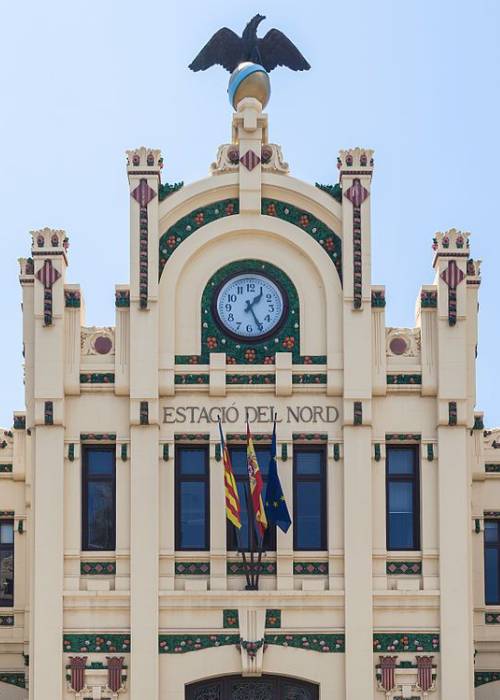The Spanish Tax System: Key Points to Know Before Buying, Selling, or Renting
You might never want to go back to France! With its sunny climate, relaxed lifestyle, beautiful beaches, rich cuisine—and especially real estate prices far more affordable than in France—Spain has a lot going for it. Every year, thousands of French nationals take the leap and invest in property in Valencia, Barcelona, Alicante, or other parts of the country. Whether it’s for a second home, retirement plans, a rental investment, or a complete lifestyle change, Spain checks all the boxes.
But before jumping in, it’s essential to understand how the Spanish tax system works. While often seen as complex, it’s actually quite structured. Real estate taxation depends on several factors: the type of transaction (purchase, sale, or rental), whether the property is new or resale, its geographical location, and the tax residency status of the owner (Spanish resident, EU citizen, or third-country national). These factors directly affect the taxes and costs you’ll need to anticipate.
Understanding and preparing for these elements helps you avoid unpleasant surprises, optimize your budget, and—most importantly—make informed decisions. Because while Spain offers many undeniable advantages, it also comes with specific tax rules that you need to know to invest with peace of mind.
In this article, we’ll break down everything you need to know to buy, sell, or rent property in Spain, legally and safely.

Before settling down in Spain, make sure you understand the tax rules—buying, selling, or renting property is not something to improvise!
Buying a Property in Spain
We promise—it’s not hard to understand!
Whether you’re Spanish, European, or from outside the EU, the applicable taxes are the same. The only differences: a non-resident must obtain a NIE (Foreigner Identification Number), and if you’re from outside the EU, the origin of your funds will be subject to stricter controls.
For the purchase of an existing (resale) property, you’ll pay the ITP (Property Transfer Tax), which ranges from 6% to 10% of the purchase price, depending on the region.
For the purchase of a new property, you’ll pay IVA (VAT) at 10%, plus AJD (Stamp Duty), which ranges from 0.5% to 1.5% depending on the region.
In addition, there are other related costs (notary, land registry, legal fees…), which usually total between €1,000 and €2,000.
Possible Reductions:
If you’re purchasing a property as your main residence, and the purchase price does not exceed €180,000, you may be eligible for reduced tax rates:
Under 35 years old: ITP drops to 6% (instead of 10%), IVA to 7%, and AJD to 0.1%.
Large families or people with disabilities (minimum 33%): ITP or IVA is reduced to 4%, and AJD to 0.1%.
Social housing (VPO): Same reduced rate of 4%.
Example: A 32-year-old buyer purchases a resale apartment in Valencia for €150,000. The ITP will be €9,000 instead of €15,000, if the standard rate is 10%.
Selling Property in Valencia
Everything depends on the seller’s tax residency status:
Resident in Spain: Tax on capital gains applies via IRPF (Spanish income tax), with rates ranging from 19% to 30%, depending on the size of the gain, plus “plusvalía municipal” (local capital gains tax), with some potential corrections. Exemptions may apply (reinvestment in a new main residence, sale after age 65, disability).
EU Resident (non-Spanish): The buyer is required to withhold 3% of the sale price, which is paid directly to the Spanish tax authorities as a prepayment of the 19% capital gains tax. If overpaid, the seller may request a refund.
Non-EU Resident: Same withholding applies, but the tax rate is 24%.
Renting Out Property: Long-Term or Holiday Rentals?
Long-Term Rental
Spanish resident: Rental income is declared under IRPF, with the ability to deduct expenses such as mortgage interest, maintenance, IBI (property tax), etc., plus an annual flat-rate deduction (usually 3% of cadastral value).
EU resident: Subject to IRNR (Non-Resident Income Tax) at 19%, with the same deductions as residents.
Non-EU resident: Taxed at 24% on gross rental income, no deductions allowed.
Holiday Rental (Short-Term)
Taxation follows the same IRPF/IRNR framework, but with specific obligations:
Must obtain a tourist license.
Must register with the local town hall.
If providing hotel-like services (cleaning, breakfast, etc.), IVA at 21% is applicable.
Owning a Property That Isn’t Rented
Even if a property isn’t rented, it still incurs costs:
IBI (local property tax).
IRNR for non-residents: 19% for EU citizens, 24% for non-EU, based on a notional income calculated from the property’s cadastral value.
Other charges: community fees, home insurance, waste tax, maintenance costs.
Four Key Points to Remember
For property purchases, tax rules are the same for everyone, but discounts exist for young buyers, large families, and people with disabilities.
On resale, non-residents face an automatic 3% withholding, and 24% tax applies to sellers from outside the EU.
Rental-related expenses are deductible only for Spanish and EU residents.
Even vacant properties incur fixed annual charges.
Conclusion
Spanish property taxation is clear and predictable, but it can be heavier for non-residents, especially those from outside the EU. Reductions apply only to modest primary residences. Ultimately, planning ahead, seeking expert advice, and carefully budgeting your property project in Valencia or elsewhere in Spain is the best way to avoid unpleasant surprises.
